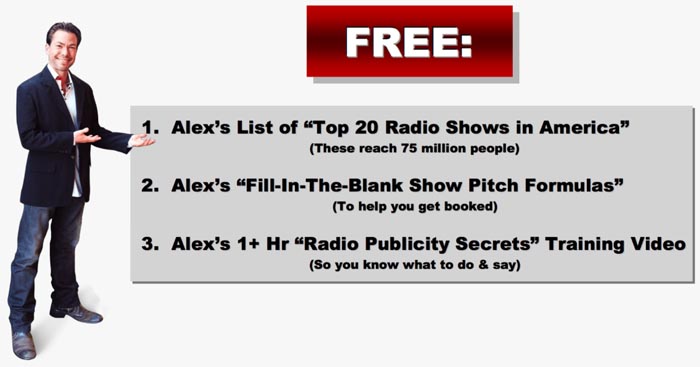
Press Release Tip 64
Why keywords are important
You’re starting Module 10 this week and you’ll learn how to optimize your press releases for the search engines to make it easy for people to find them. You’ll also see some examples of press releases that were optimized.
Here’s why search engine optimization is so important. Tens of millions of people use search engines like Google, Bing and Yahoo to find information. Many of those same people also use tools like Google Alerts so Google can alert them, via email, of specific articles that include certain keywords.
For example, I’ve set up a Google Alert so that Google gives me a list every day of articles that include the name “Joan Stewart” because I want to see what people are saying about me. If you sell diamond watches and someone is using the search engines to look for information on “diamond watches”—or they’ve set up a Google Alert, they’ll likely find your press release about diamond watches if it includes the keywords they used to search.
I’m assuming that you don’t know anything about search engine optimization. So let’s start with the basics. When someone uses a search engine like Google to find information, the search engines use several critical methods to find pages:
- Keywords or keyword phrases. These are the words and phrases that appear on a web page.
- Title. This is the title of the website page. The title is assigned “behind the curtain” as the page is being built.
- Description. This is what you see when you do a search and the search engines deliver the organic results on the left side of the screen. You usually can’t see the description when you actually click on a link, however. It’s created “behind the curtain” and it’s part of the HTML coding. Here’s a description for diamond watches, which I’ve highlighted in yellow:

- Metatags. These are special HTML “tags” that provide information about a web page. Unlike normal HTML tags, they don’t affect how the page is displayed. Instead, they provide information such as who created the page, how often it is updated, what the page is about, and which keywords represent the page’s content. Meta tags aren’t as important as they once were.
How to use keywords in press releases
- Don’t use the name of your company as a keyword. Why? Because people who don’t know about you, obviously, wouldn’t use the name of your company to find you. Instead, they’d search by typing the generic name of a product or a service they’re looking for. People who don’t know about me wouldn’t type “The Publicity Hound” into a search engine. But they might search under “writing press releases” or “free publicity tips” or “publicity expert.”
- Use specific keywords instead of very general keywords. For example, when I write the press release about this free course, I’m going to use the keyword phrase “free press release writing course” instead of “press releases” or “public relations” which are too general.
- If you sell products and services targeted to a particular region or city or state, include those locations in your keyword phrases as well. Example: “men’s diamond watches in Cleveland.”
- Place your main keyword phrase in your headline if it doesn’t sound awkward. The search engine spiders read your page from top to bottom, and you want them to find your keywords immediately.
- Place supplementary keywords in the subhead. That is, the longer but smaller headline that goes just under the main headline. Subheads can also be short headlines that you can use throughout the release to break up the copy.
- Sprinkle keywords throughout your copy, certainly in the first paragraph. Slanting toward the front and top increases your “keyword prominence” which is yet another factor many search engines consider before they give your page a ranking.
- You can even include keywords at the bottom of the release, so the search engines see a theme to the page.
- Don’t try to optimize a press release for more than about two keyword phrases, otherwise it will be too difficult to write.
Opportunity #63 to write a press release: Radio show appearances
If you’ve booked an appearance on a radio show, and it’s being recorded for broadcast later, write a press release so people can listen to the show. Alex Carroll, a veteran guest who has done more than 1,264 radio talk show interviews, is giving away three super-cool resources you’ll love. Go here and access them now. I love his fill-in-the-blank pitch show formulas because I know they work!

Next: Write for humans, not for the search engines.

Share Your Two Cents